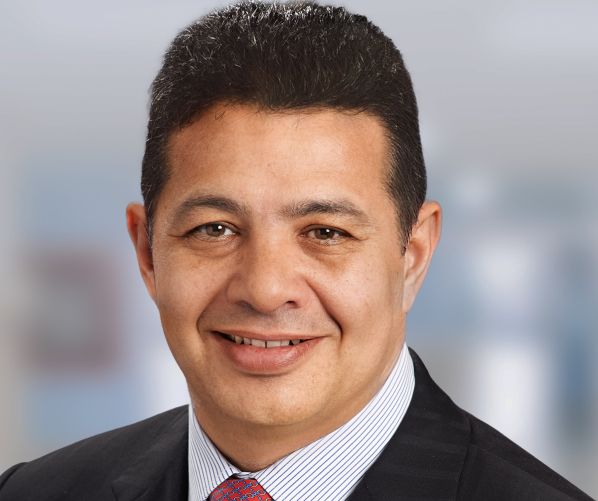THE Covid-19 pandemic, the war in Ukraine and the associated supply chain and inflationary challenges posed by these once-in-a-generation events pushed the construction industry to a crisis point. Yet there are signs in 2024 that the situation is finally back to normal; general inflation is easing, while oil prices are back down to $US 80 a barrel. “This is all part of why we’re starting to see the construction industry come back,” says Mr Raouf Ghali, CEO of Hill International.
“There’s always going to be challenges with supply chains, there’s always going to be challenges with pricing, because as the construction industry heats up, we’re going to start seeing pressure on prices come back again. But I think it is a more normal process than what we were seeing right after Covid.”
With programme, project and construction management activities spanning the globe, Hill International is well-placed to assess the condition of the global construction sector. The company itself has gone through a considerable transformation in the last 12 months. Its strategic merger with Global Instructure Solutions (GISI), which was completed in December 2022, has significantly expanded the scope of its activities and potential to secure new business.
Hill International is continuing to serve customers under the Hill International brand but as part of GISI’s Engineering & Consulting Services platform. Ghali explains that the merger was necessary due to Hill’s liquidity, debt and financial situation, as high interest rates in 2022 made partial debt refinancing prohibitively expensive. Also, as a public company, the associated costs of complying with United States Securities and Exchange Commission (SEC) reporting requirements were draining Hill “more than it was worth,” Ghali says.
“Now all of a sudden we are focused on growing our business, delivering our services, and looking at the growth of the company, rather than being spread very thinly between doing that while also complying with SEC requirements,” he says. “The amount of focus from senior management to attend to these reporting requirements took away our ability to really look at the business more. There's only so much on overhead that we can sustain given our size of business.
“Having a solid balance sheet and liquidity gives you the ability to finance mega-projects and be part of mega-projects and create critical mass in one place. It creates the potential for a lot more profit.”
Investment
Hill has invested in its rail industry expertise, eyeing growth in this sector specifically through its rail and transit market group. The Middle East is a major area of focus, including the Saudi Landbridge project, for which Hill was confirmed in December as the preferred bidder for a project management contract in consortium with Sener and Italferr. Ghali is also optimistic about expanding the company’s rail activities in the Balkans and southern Europe, areas where Hill is already active, as well as North Africa, including Egypt where the company has worked on the Cairo monorail project.
He is though, perhaps, most optimistic about the US market where spending from the Biden administration’s $US 1 trillion Infrastructure Investment and Jobs Act is fuelling a construction boom. With $US 102bn of funding available, the rail sector is a significant beneficiary: the federal government announced $US 8.2bn in funding for 10 inter-city rail projects last month while several major Northeast Corridor upgrades received $US 16.4bn in November.
Yet with unprecedented funding comes major challenges, not least in managing the large number of complex schemes underway.
Project management shortcomings are often blamed for schedule overruns and rising costs. The lack of skills and expertise in the US, where so much work is now underway, increases the pressure further.
“Selecting the right contractor is an essential part of the recipe.”
Mr Raouf Ghali, CEO of Hill International
Ghali says the goal is always to make the process as efficient as possible, and central to this is participating in the design stage. “It goes back to the old principle: plan the work and work the plan,” he says. “Really preparing the plan and the design well, and then letting it go, really does save a lot of time.”
Other factors include clear communication and an effective decision-making process. Contractor performance has the potential to be the biggest upside of a project and equally the largest issue.
“You can manage everything correctly but if a contractor, whether it is for financial or technical reasons, is unable to perform there’s very little project management can do,” Ghali says. “Selecting the right contractor is an essential part of the recipe. It’s about getting best value rather than best price.”
Rescheduling work as supply chains have been disrupted has been an essential part of project management in the last few years. Ghali is also an advocate of adopting new technologies to ease the work burden.
Drones played an important role during the pandemic to speed up inspection when fewer people were working on site. Artificial intelligence (AI) is also playing an increasing role in helping to streamline services, cut manhours, and increase the competitiveness of service delivery. And although Ghali feels it is still early days for AI, he says that Hill could quickly fall behind if it did not consider it. He expects significant progress here over the next 12 months.
“You don’t want to invest too much money because it’s a fast-moving technology,” Ghali says. “You don’t want to bring too many things in-house because there are other experts out there that are really investing and specialising in it. You want to tap into what is out there, and tailor it to your needs. It is a matter of coordination of understanding where it could lead. I think everyone in the industry who wants to be at the forefront of technology is looking at this.”

